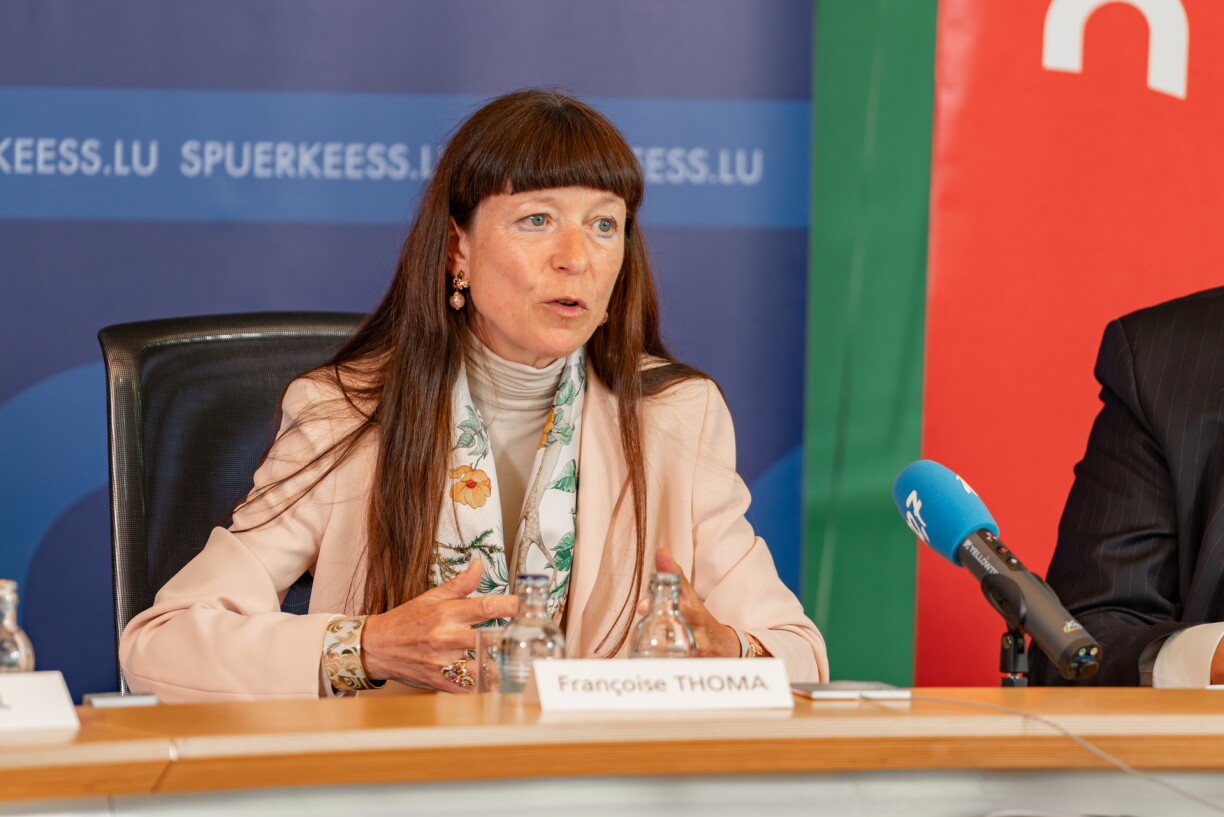
Spuerkeess Director Françoise Thoma has defended herself in the face of mounting criticism after the bank was fined for the third time in four years. Thoma stated that she does not see grounds for personal consequences or resignation, despite a cumulative total of over €10 million in penalties since 2022.
The latest fine, imposed by Luxembourg’s financial regulator (CSSF), follows two previous sanctions by the European Central Bank in 2022 and 2024. Those fines were linked to significant errors in the calculation of the bank’s capital requirements, a critical area for institutions classified as “systemic”, or particularly important to financial stability.
Thoma acknowledged the regulatory breaches but stressed the complexity of European banking rules: “But of course, as a systemic bank, we are still a small bank on the European and especially international level”, she said. “Since we became a systemic bank, we’ve started putting a number of things in place. You can’t do everything at once, we’re constantly working on it.”
Despite three fines imposed for regulatory violations and shortcomings under her leadership, Françoise Thoma has made it clear she does not intend to step down or accept personal responsibility.
“I want to lead this bank into the future with my team. Our goal is to offer our clients the best possible service while ensuring the highest level of regulatory compliance”, she said.
Regarding the decision not to inform the Caritas special commission about the most recent fine, Thoma explained that the process was still ongoing at the time. Since the bank had the right to appeal, she argued, it was not yet appropriate to disclose the matter.
“At that time, it simply wasn’t possible. If there were any misunderstandings, we truly regret that – it certainly wasn’t our intention.”
How can it be explained that Parliament was told no mistakes had been made at the bank? Romain Wehles, a member of the executive board, responded: “The procedures we had in place at the time were followed by the advisors during sales. It’s just that this setup needs improvement, and that was clearly pointed out.”
Françoise Thoma added: “At the same time, we repeatedly acknowledged that our procedures could be improved and that gaps existed in certain areas.”
The CSSF found that the bank’s internal control system was insufficient to detect suspicious transaction patterns or to verify whether transactions aligned with clients’ profiles. Would the Caritas fraud have been uncovered without these gaps? Thoma responded: “That really can’t be said. That’s why you also can’t claim a clear causal link.”
While Spuerkeess refers to the findings of the financial supervisory authority, the CSSF itself noted it was not their role to determine the bank’s responsibility or establish causality. Thoma acknowledged that a court could still potentially hold the bank accountable in future proceedings: “Whether that may be clarified in other proceedings remains to be seen, but in any case, that was not the purpose of the CSSF’s analysis.”
Spuerkeess is currently negotiating with Caritas to reach an out-of-court settlement, a step the bank insists does not imply an admission of liability.
“Such a transaction or compromise is not an admission of responsibility. However, as we have acknowledged, there were several gaps in our system. Again, we cannot say that if those gaps had not existed, the fraud would have been prevented. That is impossible to determine. But given our role, we believe it is appropriate to engage with the client to find a solution.”
When asked about the nature of the potential agreement, Spuerkeess’s director declined to provide details. The negotiations have been ongoing for several months, beginning before the CSSF fine became public knowledge.
Via Communiqué: Spuerkeess verdeedegt sech géint Virwërf
Caritas-Spezialkommissioun beduckst?: LSAP an déi Lénk si ferm rose mat der Spuerkeess